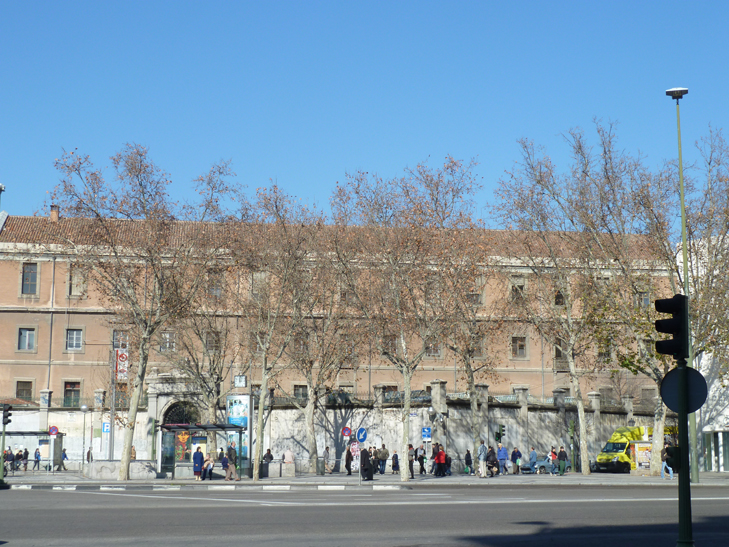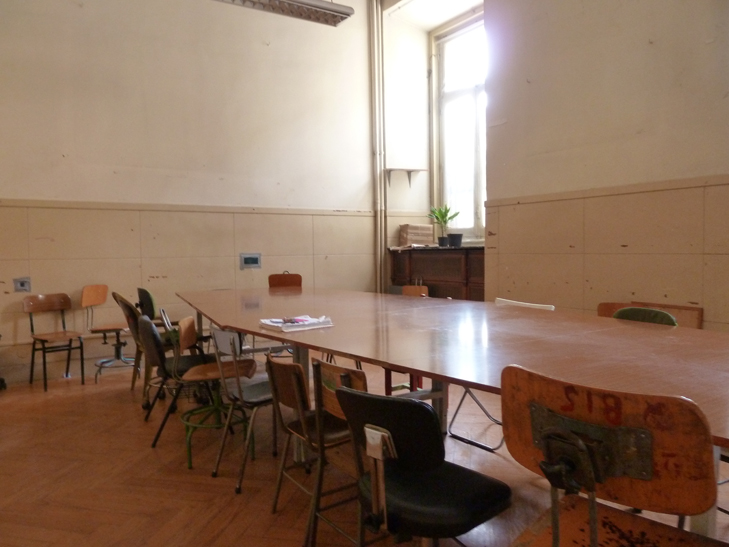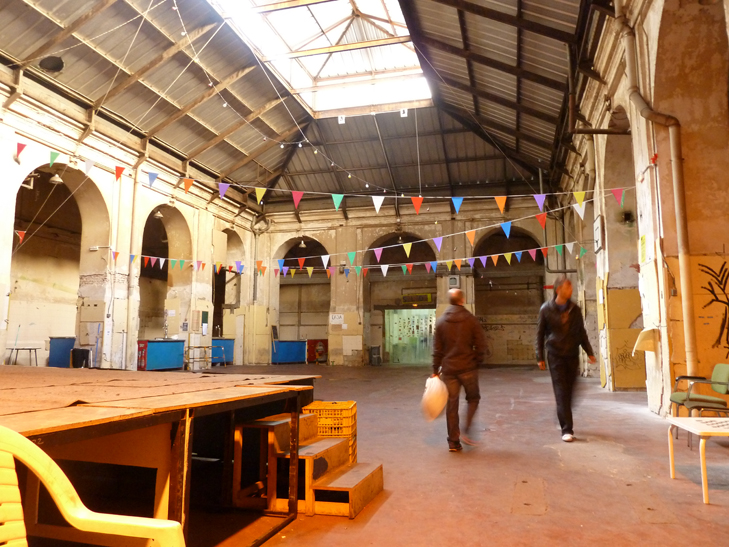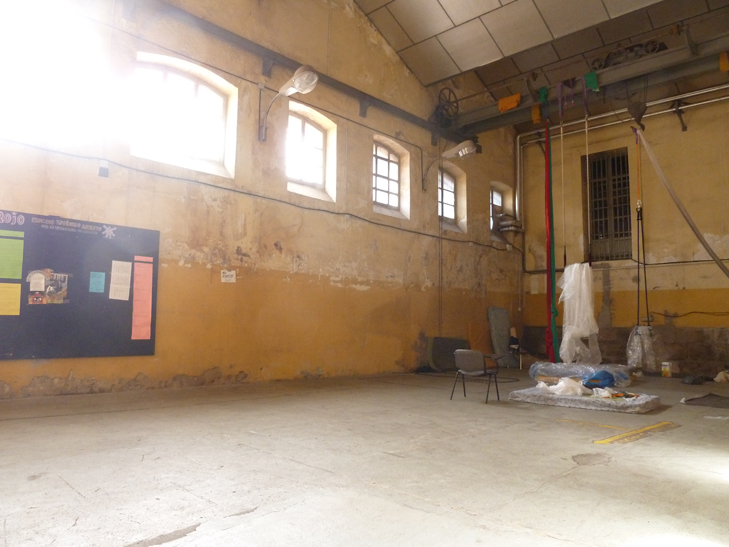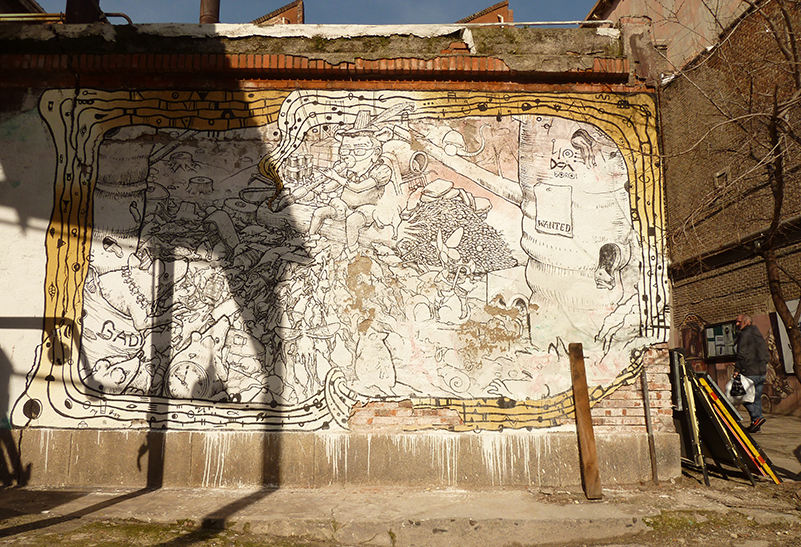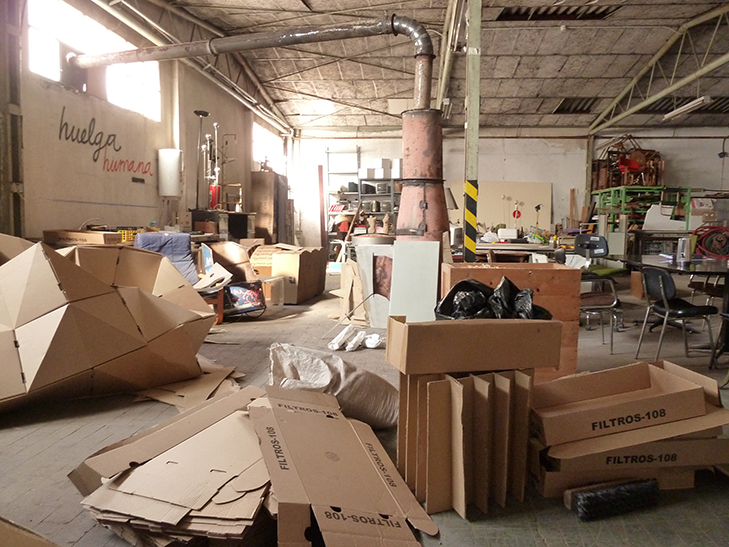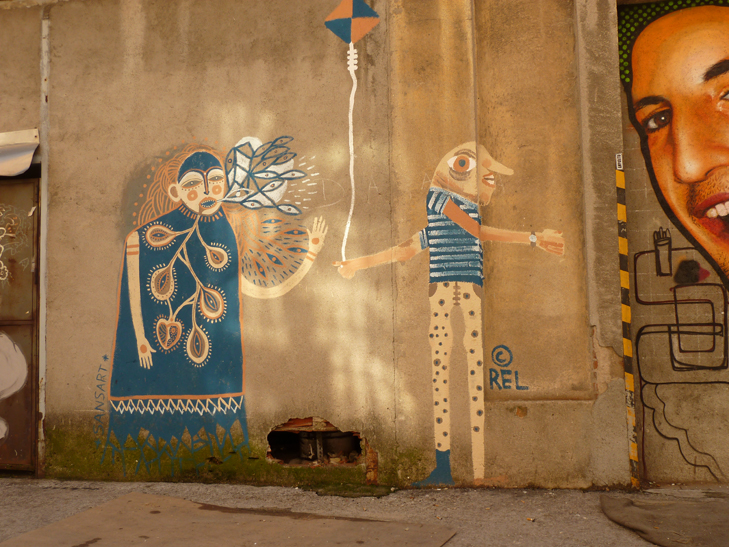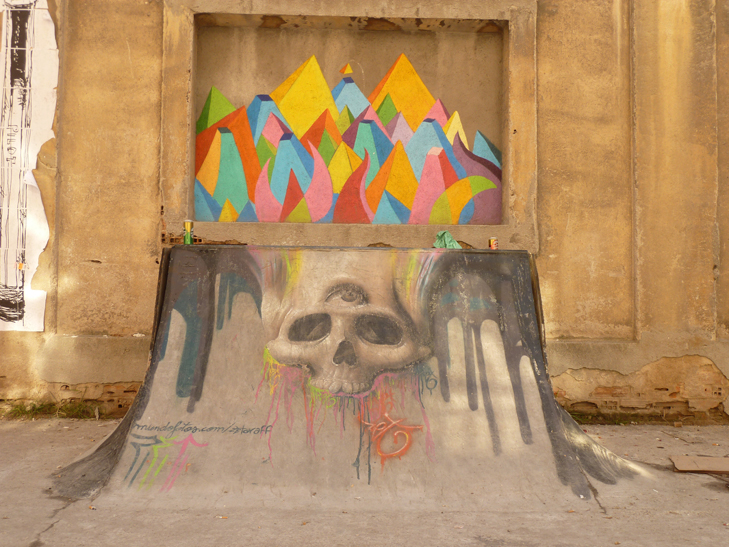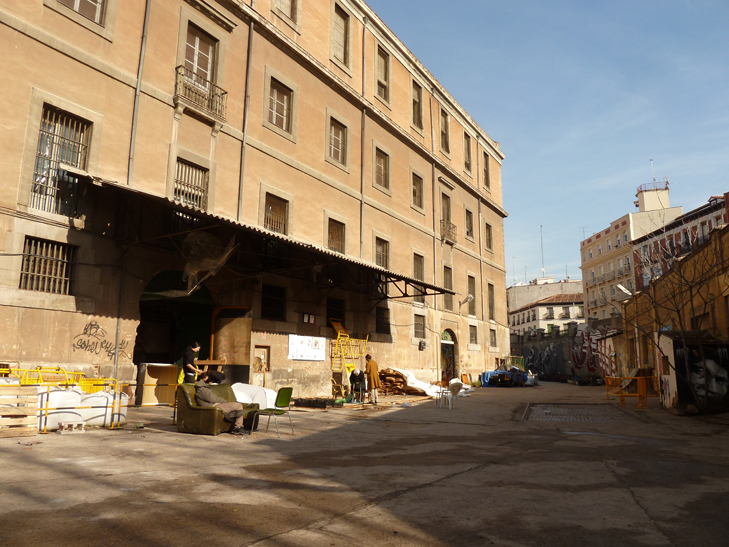Communartism in Madrid
There’s much discussion these days about disused commercial/industrial space and the onus on civic authority and property owners to allow encourage creative use of space, reduce eliminate start up costs to incentivise action and to stimulate recovery.
The Tabacalera Is an exciting reuse of an old Madrid factory, originally earmarked for local government, funding shortfalls inspired the local authority to loan out a derelict building as a self managed community arts space.
The block consists of a scores of artists studios, meeting rooms, classrooms, random halls, a large fabrication workshop, yards with a variety of potaging, a library, theatre, separate concert venue, restaurant and bar.
One of the stumbling blocks emerging artists is the catch 22 of not having space to produce work and thus not being able to afford the space to work from. The solution here is to make the space available as artist’s studios. In return the artists teach one day a week. These rules apply for any club or group and one can have access to the space so long as you provide a benefit in kind to the community. Both Artists and Community are winners.
An extraordinary amount of classes take place, from discussions on modern cinema to Tango classes to hands-on workshops from the resident artists in painting and sculptural processes. There are night-time concerts allowing young bands and DJs to strut their stuff, along with frequent exhibitions, installations and showcases
Everything within the centre apart from the contents of the bar is free.
Copyleft — all rights reversed
There is a strong left leaning ideology spearheading the venture in an attempt to achieve a free and open exchange of ideas similar to ‘open source’. Here they use the term ‘copyleft’: an artist retains the right to be identified as the author of a work (whatever medium) but that any work produced in the Tabac can be used, studied, copied, shared, or modified, and within that freedom there is a freedom to distribute modified (and therefore derivative) works.
The sole income from for running the centre comes from the bar and restaurant. This pays for utilities and maintenance and everything else is barter. Dublin artist Kenneth Lambert (who has since taken up a Tabac studio space) and I each enjoyed a stew and a beer for lunch for €5 each. While we were hanging out in the bar our Nigerian host kindly told us that we (the Irish) were the blacks of Europe and described his research project into writing the history of Euro Africans who predate the African Americans and who’s history remains largely untold. Indeed he related the history of Veslaquez’s African assistant, a worthy painter in his own right, whose pictures are buried in the Prado for fear their exposition would devalue the masters work, or so it was explained to us.
Its not without it’s problems – open doors can attract an anti social element, and the bars lose out to beer-sellers on the street that undercut their prices. It’s a worthy study both for it’s success and failures.
The Tabacalera is fascinating initiative, pushing the limits of community, barter, artistic collaboration and intellectual copyrights. The idea that artists who benefit from public funding should also be educators for the community pro bono is something we could definitely learn from.

